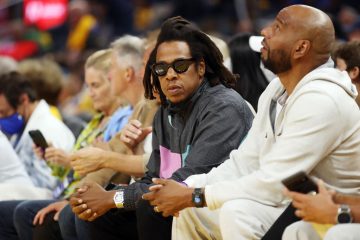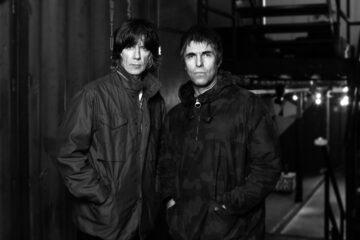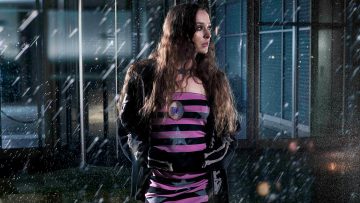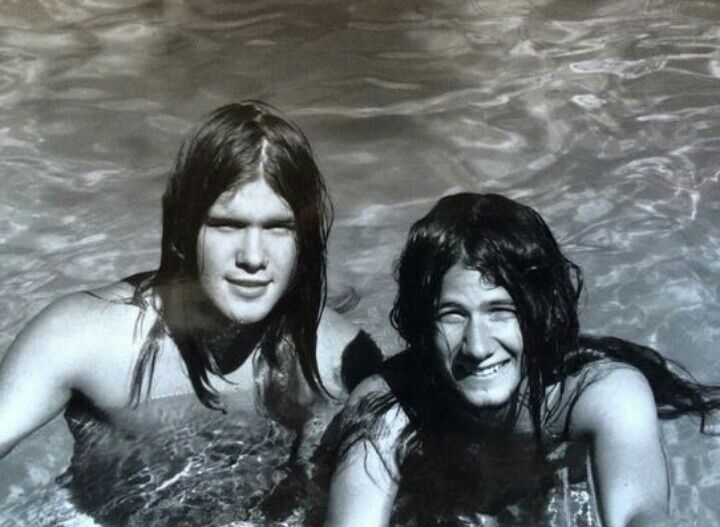
With a new film out now in the UK, which intimately details the heady rise and tragedy that the band Blind Melon experienced, we speak to guitarist and original member Christopher Thorn.
Much-loved for their psychedelic rock hits, including their hugely successful ‘No Rain’ (the video for which is a must-see), Blind Melon were faced with the untimely death of their lead singer, Shannon Hoon, in 1995, which affected the band indefinitely.
‘All I Can Say’ is currently in selected UK cinemas and on demand now. Click here for more information.
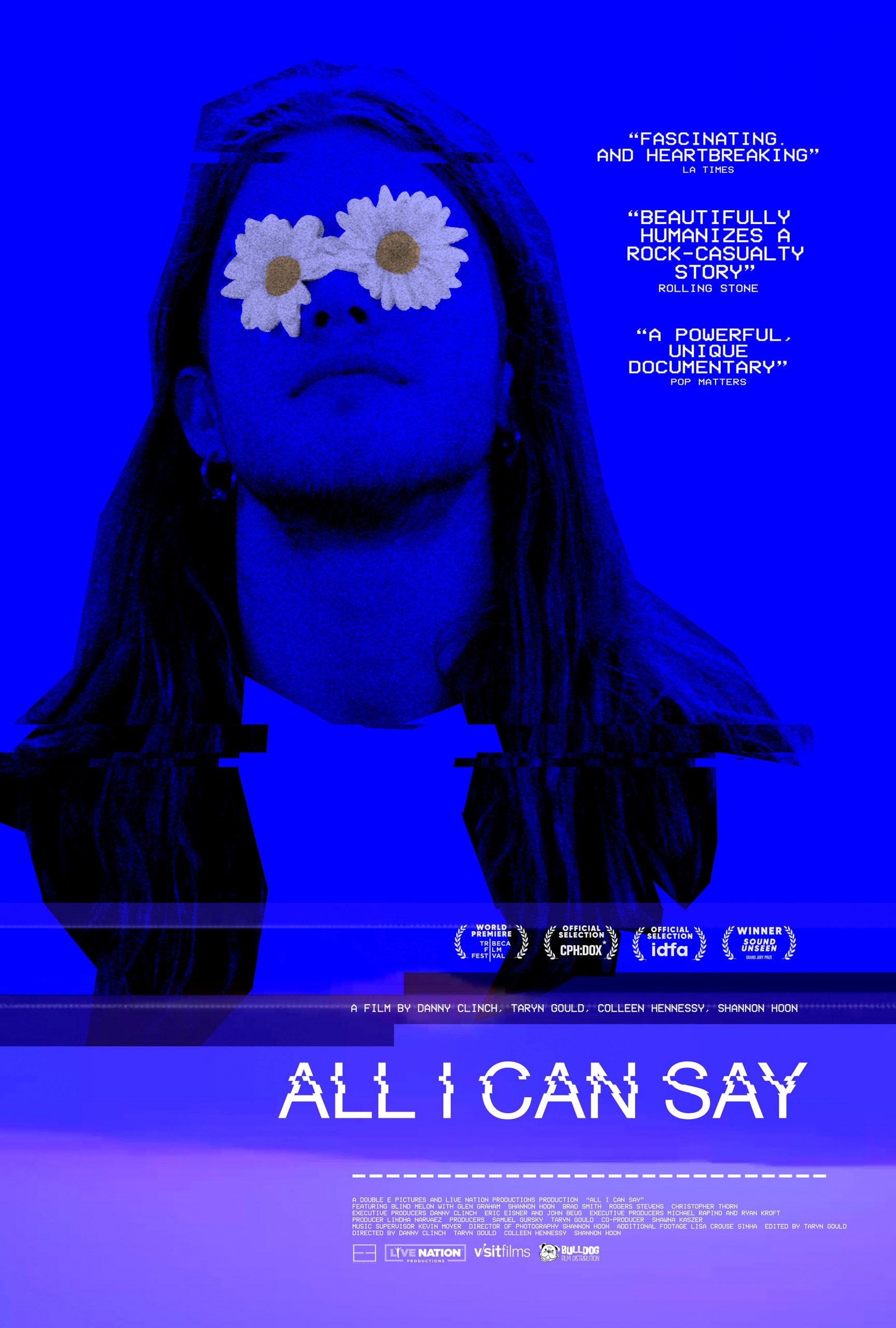
How did you become involved with Blind Melon?
In 1988, I drove across the country to LA with my then girlfriend, who’s now my wife. I placed an ad in the Music Connection magazine – that’s how you’d connect with musicians pre-internet. Through that I met Brad Smith, the bass player for Blind Melon. Maybe like six to eight months later, he said, “Rogers [Stevens] came out to LA, and we’re forming a band and we just met the most amazing singer – come over and meet him.”
So I went over that night and Shannon Hoon played me ‘Jane Says’ by Jane’s Addiction, and that was kind of it. Honestly, I knew immediately how incredibly special Shannon was. We were all from these small towns living in this big city, so we bonded over that.
What was Shannon like when you first met him?
He always had the biggest personality in the room. He could charm anybody. We used to joke that Shannon could sleep with your girlfriend and just apologise the next day and he was so charming, you probably would have said, “Oh, man, it’s cool.” He just had that charm; whatever that is that I’d read about in all the biographies of rock stars, everything I’d ever dreamed or read about.
What did you make of the film ‘All I Can Say’?
I think it’s incredible. It depends how I feel in the moment, it hits me in different ways. Sometimes it’s excruciating, and painful to watch; sometimes I’m like, “Oh, wow, I get to hang out with Shannon for an hour and a half,” and that feels good too. So I think it’s incredible, I’m beyond grateful to Danny [Clinch], Taryn [Gould] and Colleen [Hennessy], for getting it made. I had no idea how hard it was to actually make a movie. And those three worked incredibly hard. I thought it was a beautiful portrait, or a beautiful painting of an artist.

Christopher Thorn (right) & Shannon Hoon (left).
There’s a great shot of you in the film when you get your first record deal in 1991. What was that like?
For me, it was so special, because I had simple dreams when I moved from Pennsylvania to LA. And for me, just being able to tell my parents and people back home that I had a record deal was something validating. This is pre-internet. Now you can release a record and put it on Spotify, and you can be huge, but back then you had to have a major label deal.
And then you realise the work has only just begun. But there’s a sense of feeling like, “okay, great, we have somebody who believes in us now”. You have a whole record company – and not any record company, the record company who signed the Beatles, who signed Radiohead and Pink Floyd. So it was a really good feeling. That was a great day I’ll never forget.
Did you have imposture syndrome or were you completely confident in your abilities…?
No, I had impostor syndrome. I still have it. I still feel like someone’s gonna figure out that I’m really not that good. I think you always live with that. We were young and the band was still forming when we got the deal. But what was great about the business back then and Capitol Records, specifically, was the president said, “you guys need to hang out and be a band,” so they gave us money to go hang out in North Carolina for an entire year and write songs together before we had any pressure to deliver something.
I don’t know that I hear that too often anymore. So we did that, and we wrote a bunch of songs in North Carolina and learned how to play together. That helped build our confidence before we went in to make the record.
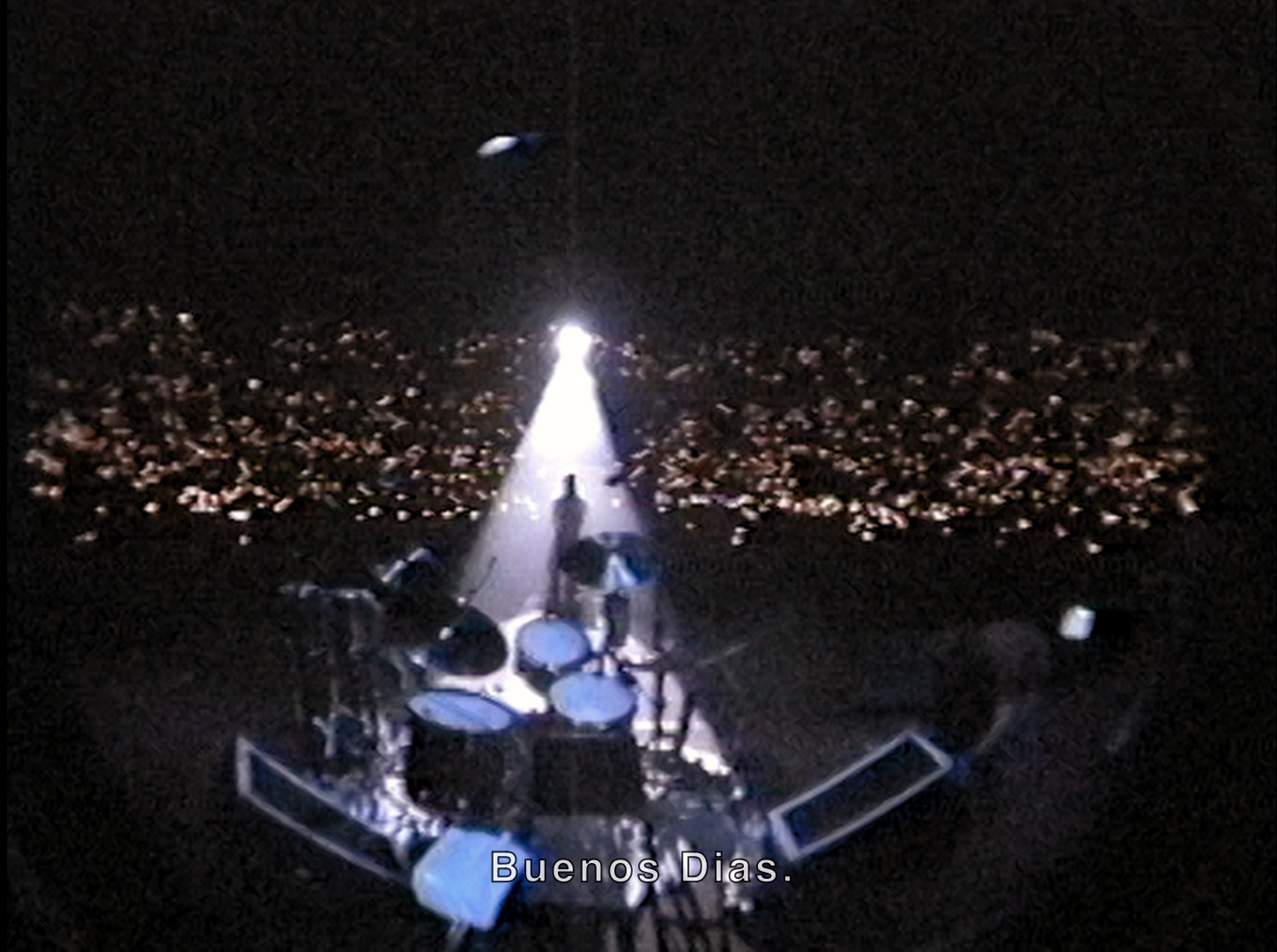
You had huge success, notably with the track ‘No Rain’. What was that experience of real mainstream attention like for you?
It was completely surreal. People don’t always have the timeline right because the record came out and we did not have success – ‘No Rain’ was like the third or fourth single by then, and then the song caught fire. By the time ‘No Rain’ became a hit, we were pretty burnt out because we’d toured for a good long time. We thought we were all just going home. Then that happened and our lives flipped upside down.
I’m not complaining. I use the word surreal a lot because life was so weird. The success was crazy. Every day there was a new phone call from our manager saying, “hey, they want you to be on the cover of Rolling Stone”; then two days later, “hey, Neil Young wants you to open up for him,” and “The Rolling Stones want you to…”. Dreams were coming true so fast I just couldn’t even keep up on it. It was like every boyhood dream I ever had all came to fruition in this one period of time. It was overwhelming, but super exciting, you felt like you were getting shot out of a cannon.
Were you at all conscious of the impact a rapid rise to success would have on you guys?
I don’t think anybody really knows. You can’t really prepare yourself for it. If you watch all those ‘behind the music’ films, you can predict how every band is going to end. It’s the same fucking story every time: somebody does drugs and money separates bands, people do crazy shit, blah, blah. But nobody gives you a handbook when you get a record deal. So you’re never really prepared for it. You just strap yourself in and hope you have a bunch of people around you that can ground you.
You mention some of your memories there – Neil Young, Rolling Stone… Which moment stands out the most?
I’d say all of it. I hear myself telling stories and sometimes, as I’m saying the story, I feel like the guy in Fast Times at Ridgemont High with the bong in his hand who’s just making shit up at the party. I hear myself and I sound like I’m full of shit, saying, “oh, we used to hang out with Ronnie Wood; Brad Smith would play pool with Ronnie Wood every day.” And I think, “am I making that up? Or did that fucking happen?”
It all feels like a crazy dream. Because it happened really fast. The career was five years and then it was just gone, with the blink of an eye. It all disappeared in one day. So for the rest of my life, you wake up and you go, “was that real?” because it ended so abruptly and happened so quick. For many years, I was struggling.
Sometimes I’ll see the Rolling Stone cover and it almost looks fake to me. You can go to Disneyland and get those like fake magazines with your picture on the cover of Time. When I see the Rolling Stone thing, I sometimes think, “that literally looks like something my parents made for me as a Christmas gift.”
There’s a scene in the film where you’re discussing the Rolling Stone cover after the magazine originally just wanted Shannon on his own. What was the dynamic like between you guys as a band?
It was all equal on paper, but completely and totally not equal. On paper, the songs are Blind Melon, written as one, and we’re all a team and everybody has an equal say. But that’s not really the truth. At a certain point, your singer runs your band, whether you like it or not. But look, he’s got the most pressure, he’s the most visible person, he’s singing all the songs, he’s written the lyrics to a lot of them, not all of them, but most of them. And the pressure was always on Shannon.
For certain people in the band, I think they had a hard time with that. For me, I don’t want the spotlight on me. I was fine with Shannon taking all the heat, I was happy to be in the back seat for the ride, man. I was just grateful to be there. So there’s always issues in bands, but I never had a problem with Shannon taking the spotlight.
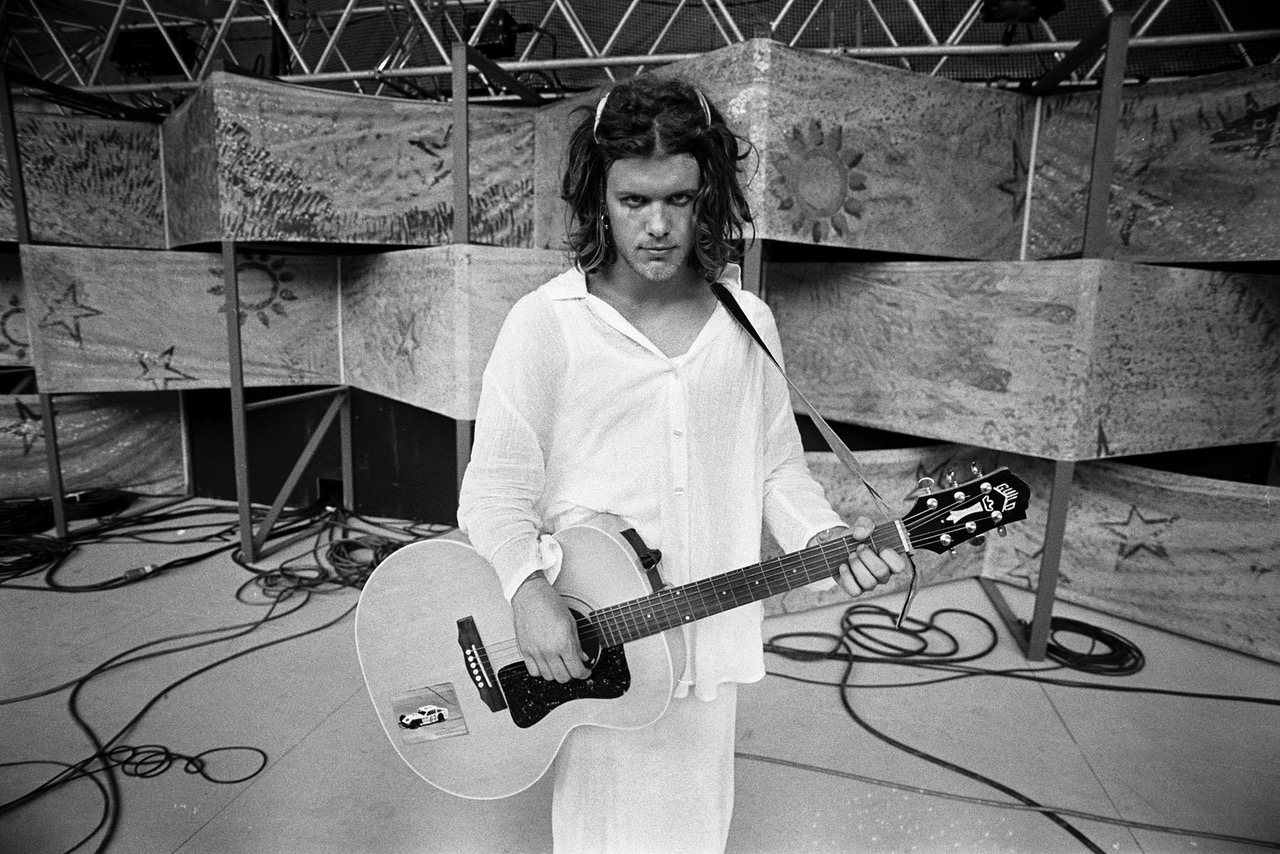
Shannon Hoon
Do you recall the moment when you found out about Shannon’s death?
I do. I mean, I don’t really love to talk about it. It’s just such an awful day. But we were on tour, and we pulled into New Orleans. I saw Shannon that morning, we all got into the hotel together, got into the elevator and went to our rooms. And that’s the last time I saw Shannon.
Then I got a phone call a couple hours later about it. And you know, it’s shocking, it’s another part of the story that just felt so unreal, like opening up for our heroes did or being on the cover of Rolling Stone or selling millions of records. It all felt unreal, including the very end when somebody calls you up and says, “Shannon’s gone”. It was like “this can’t be true.” None of it can be true.
You mentioned before about how there was a space of five years and then one day where it all changed…
Yeah, overnight. And I’ve said this before, it’s one thing to lose your best friend. That’s a bummer for anybody. But what I realised is, our best friend died, but also the CEO of our company died; my job went away, my life’s career. I worked so hard to get that record deal. That was my very first dream and my first goal is just to have that deal. And then from there, we had all those other crazy success. And then it disappears. And it’s just a crazy thing to wrap your head around. It really is.
In 1996, you came together again to produce the album Nico, named after Shannon’s baby daughter. What was that like and what was the motivation for putting that together?
I think we just needed to be together. I’m really glad we did that. At first, I thought it was gonna feel so weird. And it was weird at times and heart-breaking, but it also felt good to all be around each other one last time, and even though Shannon’s not there, you feel like he’s there. So, for me, it’s a painful memory, but it’s a great memory because I just needed to be around my brothers again and tell stories about Shannon again. And I think it was a way for us to all feel a little bit better about what had just happened.
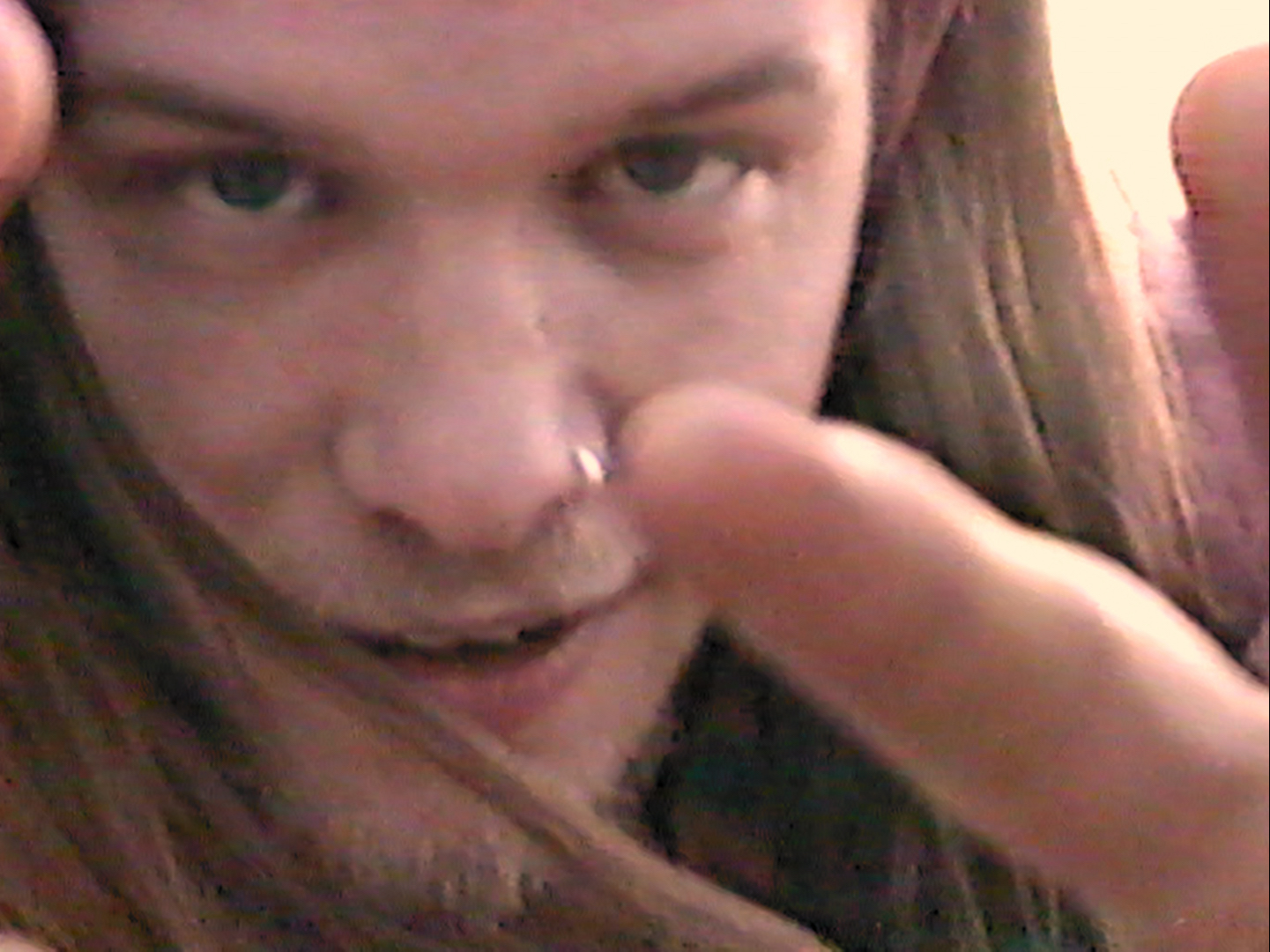
In the end, for me work always makes me feel better anyway… Music to me is always the spot I go to, no matter what’s happening. Whether it’s a celebration or something awful, I’m always turning to music. There’s something about those waves, boy, they get into your soul somehow. I don’t know what it is, but there’s something magic about those waves, I’m telling you.
And what advice would you give to aspiring rockstars?
Oh boy, that’s a tough one. I say to people all the time, “one song will change your life.” If you write one song, that song can touch so many lives. I just tried to simplify the business for people, where it’s all about a song. I sound like an a&r guy, but it really is.
And that always has to be at the very top; to write the song that changes the world, or changes your world or changes your tribe, or changes your five best friends – whatever the goal is, but it’s always about the song, and people get caught up in the rock star portion of it, but that’s never important. It’s about writing great songs, which I think in the end Blind Melon did. I’m really proud of the songs we wrote.
I think the reason we’re talking about Shannon is not because he was crazy, and not because he was handsome and all this. I think we’re talking about Shannon because he wrote fucking ‘Change’ and ‘Mouthful Of Cavities’ and ‘Dear Ol’ Dad’. There’s lots of people who were entertaining and fun to watch. But in the end, it’s the song. That’s why we’re here still talking about Shannon.


